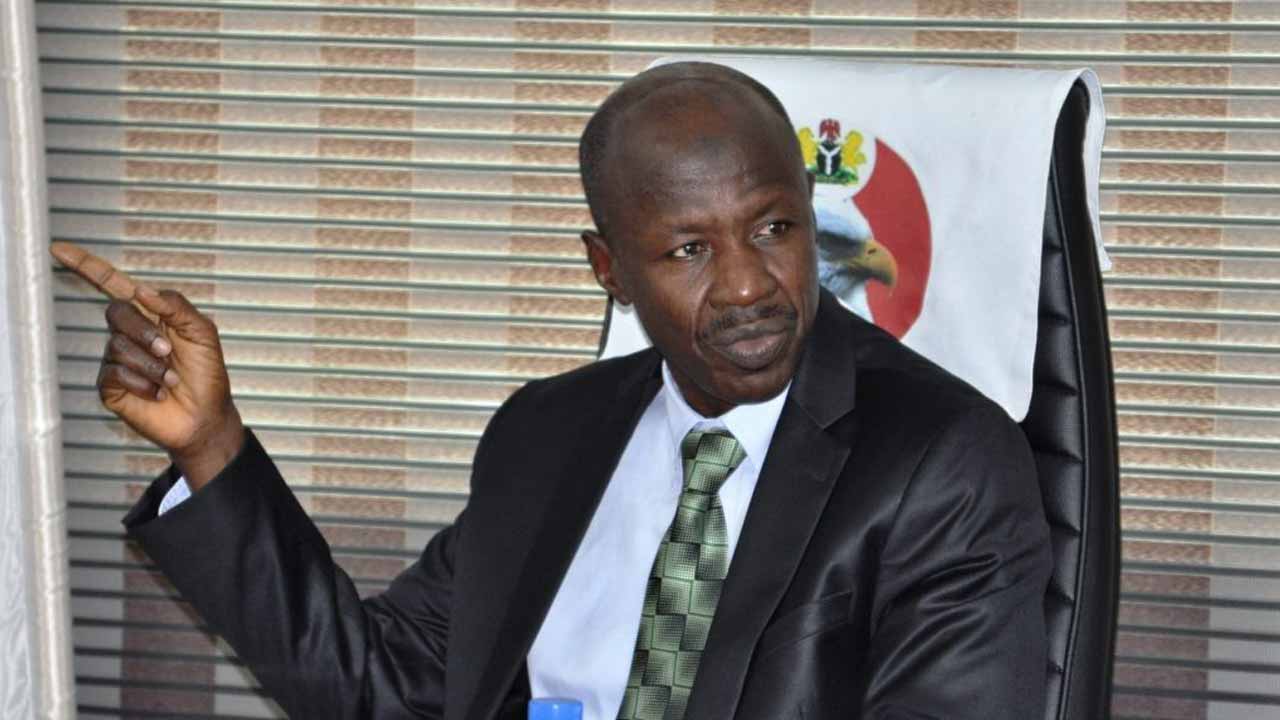- Finally, Senate Sets Date to Screen Magu
The Senate is finally set to screen the acting Chairman of the Economic and Financial Crimes Commission (EFCC), Mr. Ibrahim Magu, for confirmation as the substantive head of the anti-graft agency.
Senate President, Bukola Saraki, yesterday announced that the screening would hold today by 11.30a.m. during plenary.
Previous attempt to screen and confirm Magu had suffered several setbacks in the upper legislative chamber, even though he has been functioning in an acting capacity since 2015.
The letter seeking his confirmation was first transmitted to the Senate by Vice-President Yemi Osinbajo in his capacity as acting president on June 17, 2016.
It was however, not read on the floor of the Senate until July 14, 2016 by the Senate President.
After dilly-dallying for several months, the Senate, in December 2016, declined to confirm him on the basis of a damning security report from the Department of State Services (DSS), which indicted Magu of corruption and accused him of sabotage and leading double lives.
The development caused the Senate to request that Buhari should forward the name of a fresh nominee as chairman of the EFCC.
The report had noted that Magu lives a flamboyant life, above his means, living in an apartment paid for by a ‘questionable businessman’, Commodore Umar Mohammed, who also furnished the apartment at the cost of N43 million.
He was also accused of proceeding on official and private trips in a private carrier, Easy Jet, owned by Mohammed, and on one of such trips, had flown to Maiduguri with Mohammed and the Managing Director of a bank who was being investigated by the EFCC over complicity in funds allegedly lodged with the bank by the former Minister of Petroleum, Mrs. Diezani Alison-Madueke.
The DSS also accused Magu of cultivating the habit of flying first class against the directive of the president, adding that he had once flown first class to Saudi Arabia to perform the lesser hajj at the cost of N2.9 million.
The report also alleged that the DSS discovered a number of official documents which Magu had made available to Mohammed when it searched the latter’s house.
One of such letters was said to have been forged from the Office of the Vice-President containing the report of a fictitious investigation by Vice-President Yemi Osinbajo to the president requesting for approval to commence a probe into a matter claimed to have involved the Minister of State for Petroleum, Dr. Ibe Kachikwu and his brother, Dumebi.
Following the Senate’s rejection of his nomination and indictment, the president directed the Attorney-General of the Federation and Minister of Justice, Mr. Abubakar Malami (SAN), to investigate the allegations against Magu.
President Muhammadu Buhari in a letter dated January 22, 2017, to the Senate, had however re-nominated Magu, seeking his confirmation, as he had been cleared of wrongdoing.
Earlier at the plenary, the Senate President read the letter written by President Buhari, to formally notify of his resumption.
“In compliance with Section 145 of the 1999 Constitution (as amended), I write to intimate the Senate that I have resumed my functions as the President of the Federal Republic of Nigeria with effect from Monday 13th March, 2017, after my vacation. Please accept the assurances of my highest consideration,” it read.


 Naira4 weeks ago
Naira4 weeks ago
 News4 weeks ago
News4 weeks ago
 Naira4 weeks ago
Naira4 weeks ago
 Travel3 weeks ago
Travel3 weeks ago
 Jobs4 weeks ago
Jobs4 weeks ago
 Naira3 weeks ago
Naira3 weeks ago
 Naira3 weeks ago
Naira3 weeks ago
 Investment4 weeks ago
Investment4 weeks ago





























